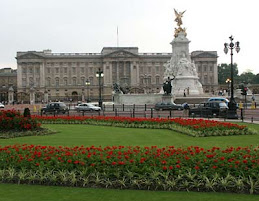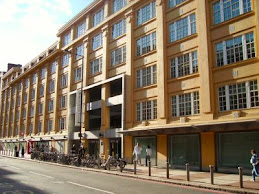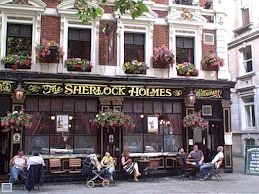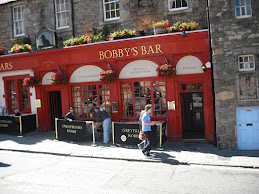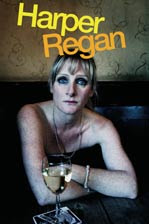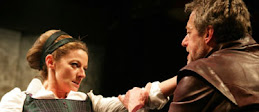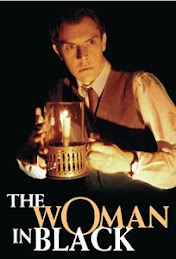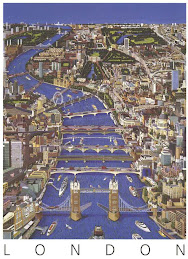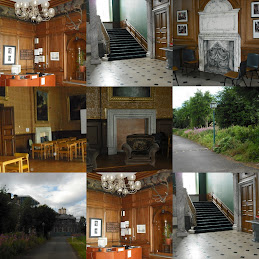
The Largest School in the United Kingdom: University of Strathclyde
Discussion of Research and UK Librarians
While in Scotland, the class took a tour by bus to the University of Strathclyde in Glasgow, an academic institution that began in 1796 as a place for useful learning for all, with a reputation for reasearch and technical education. Our main hosts/speakers were David McMenemy and Alen Poulter. As a special treat, we got to hear about their research work and as an extra perk, listened as well to the ongoing research of a doctoral student, Christine Brown. The first part of our tour would begin in the Saltier Center and end at the library at 'the Bridge' (Easter House) for the socially deprived primarily, yet for the community as a whole to use. The Bridge is run by the government and has merged with local public libraries, universities and art centers. For the overview of the academic institution, UK libraries and research, David was to offer helpful information concerning the background of libraries. Christine was to offer the social values of the profession and Allen would discuss forensic readiness. Allen Dawson would be the last speaker to discuss his digital research.
DAVID McMENEMY:
David McMenemy, the Course Director of the Science Department, gave the class an overview of the university. He informed us that he teaches about technology, with special interests in metadata and research. After walking through the building, the class came together in a large room upstairs to comfortably sit/listen to the different talks and watch a few powerpoint presentations. I took notice that the university facility was a modern one in stark contrast to the campus facilities visited at Oxford University. After listening to Mr. McMenemy, we learned the campus and the Library at the Bridge predominantly served the socially disadvantaged students. He let us know that the facilities are fantastic and that it is an impressive university center that is more of a learning space.
Classification System:
As a review of classification systems used, Mr. McMenemy informed the class that the public libaries use the Dewey Decimal system. The British Library uses the Library of Congress’s subject headings and they make use of cards that are reusable and are of the British version (Silip).
Crisis in the Library Profession and Other Interesting Information:
Mr. McMenemy let us know that the crisis of confidence in the United Kingdom is in “keeping it going”, meaning to keep people in the library profession. He said that in the United Kingdom, public Librarians are considered “managers.” The managers handle all of the professional issues, yet he said that the manager title philosophically damages the image of a Librarian as someone who is self absorbed and not patron focused, as can be associated with management. The public libraries in the United Kingdom use the “Starbucks” bookshop type model that has been taken over by business persons.
There has been a movement of literacy he informed us about at his institution where there is a direct connect of patrons with tutors, given available service points to the students. There is also a movement of consulate libraries, where patrons feed in from other areas to be serviced. It was interesting to learn that bandwidth serves as a catalyst for public libraries, yet that the largest percentage of the population there did not use the Internet. There is little funding for technology and we were told it is very hard to keep up with the upgrades in technology. As a lifesaver for the library, it has been most helpful that the “lottery fund” provides a substantial amount of capital to offset many of these costs. Mr. McMenemy said that the public library as a goal strives to scale staff, upgrade technology and service people better.
Statistics: The University of Strathclyde
In the year 2006, the Scotlands had the third largest university. In 1964, the University of Strathclyde moved up in rank as they merged with the Scottish College of Commerce. There are approximately 25,000 students, with 10,000 post graduate students. The university of Strathclyde has the largest number of postgraduate courses offered. For 60 years, the University has been teaching Librarian coursework, yet according to Mr. McMenemy, became more “librarianish” in 2007. The University of Strathclyde is the second United Kingdom university to teach library subjects after the University of London. A “MSc” is the Masters of Science in Library and Information Studies professional designation, not the MLIS or MLS as found in the United States.
How Librarians are Governed: Impact of Devolution
There are 4,515 public libraries, 846 academic libraries and as of current, there are no statistics collected of how many UK school libraries exist. We were pretty surprised to learn that there is not a required statutory certificate requirement for teachers to get a library degree! We were informed that there are huge academic differences of the profession in the United States and the United Kingdom, with librarians historically being undervalued greatly in the United Kingdom. We were also told that there is not a lot of research found in school libraries there.
In the United Kingdom, Mr. McMenemy stated that public libraries are legally obligated to provide a “comprehensive and efficient” public library service for anyone who lives, works, or studies in the community under: 1964 Public Libraries & Museum Act (England and Wales); and the Local Government (Scotland) Act of 1973. Scotland and Wales has a council over their libraries.
Most library sectors are as Mr. McMenemy stated, “devolved.” All public library services are now governed by developed parliaments (school, academic, public, and health libraries). There is a very distinctive organization of librarianship.
Key Professional Issues:
Mr. McMenemy stated that there are significant drops in borrowing figures/statistics. Librarians are having to attract non-users/patrons today. The Digital Divide is also a huge concern here as in the United States. Lastly, the deprofessionalism and how to measure library services effectively are other key issues of the library profession.
CHRISTINE ROONEY (Doctoral Student): The Social Value of Librarianship
Christine is a doctoral student who gave us a talk on the social values of the profession and her ongoing research work. She works within the Department of Computers and Information Sciences. Of interest to our group, Christine is doing extensive research of the United Kingdom and United States libraries currently.
For background information, Christine informed the class that the traditional role of the public library has many expectations and is not just about books, but the library is seen as an institution that offers something for everyone. The social value of the profession are those that have impacts that go above and beyond the book, as the library collection offers patrons self esteem, a means of communication, literacy and knowledge for examples. The library is more than just ‘book issuing points.’ An example of the services of the library is one for the elderly where the offer of books by a “Mobile Team” may help lessen loneliness in addition to offering a means of self expression, bolstering self esteem and increasing knowledge stores.
Measuring Performance and Social Value:
Christine stated that in measuring performance, the economic value of libraries must be accessed. For example, audits and valuation studies are performed regularly. The social values of the field is measured by means of qualitative evaluation methodologies, where the social impact is measured using data collection methods such as self assessment. She stated that the good that comes from measuring performance impact on social values is that it is very important as it allows library managers to communicate professional values to the institution. The bad that comes from it is that there is a long term impact of devaluation of the field. She explained that this measurement is kind of a flawed method. Her personal research strives for meaningful evaluation to determine the ‘true value’ because there is a lack of meaningful consensus in measuring performance and value because social values are particularly overlooked. Christine stated that she will question what is social value in her research and will come up with a methodology to measure it in public libraries using a “Social Impact Audit.” This will involve a series of questions, interviews and focus groups. There is an encouraged dialogue that will be adaptable to provide “retro-data.”
Stages of Research:
In Stage I of Christine's qualitative research methodology, she will identify the stakeholders and establish links in case studies. One focus of her research will be on how major catastrophic events, such as Hurricane Katrina, affects public libraries. She plans to collect data from New Orleans and was open to listen to our stories about Katrina, hoping to gain more insight and data. She seeks to look at the impact of such a disaster upon libraries and on the rebuilding of a community through things such as FEMA assistance, being dislocated and the information sources available. She is studying these impacts for the future benefit of libraries!
Stage II of her research is more quantitative research. Christine is collecting data through a collection of statistics, reports, analysis, and questionnaires. The data is based upon gender, age and things such as social status. Interestingly, she found that compared with affluent libraries in her area, the socially deprived libraries offered a unique social space and communal hub for patrons where users are offered and demand a welcome environment with ample gateways to information, literacy and a means of escapism.
What Research Should Do:
Christine stated that research from an international perspective should responsibly empower library professionals. Research in this area should also communicate the characteristics and roles of pubic libraries of the 21st century. Of importance to conducting research of public libraries, she added that research should promote an understanding of the social values and offer/produce a model.
ALEN POULTER:
For this part of the session, Alen Poulter told us that he is conducting research on computer misuses. He took a look at postgraduate courses on computer networking in his overview of forensic readiness. To discuss the frills as he called it, Alen offered a background of the “People’s Network.” To address the Digital Divide, what is offered to combat it is Information technology courses online. He also stated that libraries should have acceptable usage rates of computers that patrons must accept. Additionally, Mr. Poulter confirmed that there is some evidence of misuse that has been found on the Internet with privacy related issues. A lot of monitoring is what is going on currently with libraries and filters are being used, yet currently they are looking for an alternative.
His Research:
Mr. Poulter stated that in his proposal outline, he developed a logging system to document low level actions as a monitoring system that offers a fuller range of measuring evidences of computer misuses. His methodology valuably offers literature reviews of computers misuses. What he has found so far concerning computer misuses is quite a bit of forgery and breeching acceptable use policies (AUP). Examples he gave of misuses are of pornography, chatting, using Bebo, and instant messaging in the library. As a means of data collection, Mr. Poulter has used interviews of small public library staff members. He found that the AUP were out of date, undefined and unacceptable. Unfortunately,there was no standard of recording that misuse either.
Aim of Finding Tools to Monitor Computer Misuses:
Mr. Poulter informed the class that the use of windows software, no open use software and no recording of passwords for security of information is optimal. He thought about giving patrons the option to develop information on an encrypted network. He also stated that he would love to have local policies for checking and reporting misuses. There exists a tension between free access and not, but he stated that “logging” is an option. Unfortunately, the public library infrastructure does not support this. There exists only a random checking of patron computer usage at the present which he stated is not sufficient.
ALLEN DAWSON:
The last speaker, Allen number two, works in the Centre for Digital Library Research. His research themes are collaboration and catalogues. He tries with his research to “bridge the gap” between research theory and practice through informative research.
BUBL LINK:
Allen stated that the BUBL link is a Internet Catalogue of Internet resources. It has been around a long time. The interface is good and is very browsable and popular!
CAIRNS:
Allen stated that CAIRNS is a catalogue of Scottish libraries that offers keyword searches. It is similar to a university catalogue.
These two catalogues are used in his research, as he conducts research on digital libraries. Alen looks to the popularly used and well built up and maintained Glasgow Digital Library, which is a collection of people, events, groups, literature and images for example. Each is a collection in and of itself. The theme is how to keep each of these collections going maintenance-wise. It was explained to be a simple database that is cost effective and searchable because of its HTML format. Of importance, the digital collections supports: Teaching; Learning; and Research. We were told that the content is dynamically linked. Alen stated that he strives to optimize the subjects and links. Interoperability is extremely relevant and of importance to his research and was explained as not being a difficult process. He stated that using open access sources makes it exciting.
Mr. Dawson’s ongoing research today is in “Digital Preservation.” At present, there is a huge four year European project in digital preservation he is involved with called “SHAMAN.” It delves into ‘Terminology Mapping’ by subject and terms in a subject scheme that is incompatable with other schemes (ie. MESH).
Websites of Relevance and Interest:
The University of Strathclyde Glasgow
